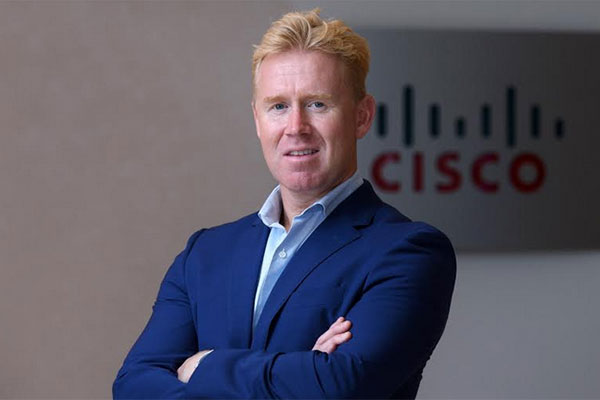
Mason ... focus on evolving cybersecurity solutions
Cisco sponsors e-Crime Congress in Abu Dhabi
DUBAI, September 19, 2016
Cisco, a global technology leader, will participate as a strategic sponsor in the 8th e-Crime Congress Abu Dhabi 2016 which will highlight latest trends, techniques and regulations in data protection, cyber security, fraud and privacy.
To be held on September 21, the event will also address another critical shortcoming in the war against cybercrime – the lack of skilled security professionals.
As strategic sponsor of the event, and partnering with Emircom, one of the UAE's leading systems integrators, Cisco will use this platform to share insights from Cisco’s 2016 Midyear Cybersecurity Report (MCR 2016) and help chief information security officers (CISOs) evaluate the cyber-security solutions available to them and to assess the overall security of their digital businesses.
The Cisco 2016 Annual Security Report revealed that only 45 per cent of organizations worldwide are confident in their security posture as today’s attackers launch more sophisticated, bold and resilient campaigns.
According to Cisco’s MCR 2016, so far in 2016, ransomware has become the most profitable malware type in history with experts seeing this trend continuing with even more destructive ransomware that can spread by itself and hold entire networks, and therefore companies, hostage. Hackers increasingly tap into legitimate resources to launch effective campaigns for profit-gain. Additionally, direct attacks by cybercriminals, leveraging ransomware alone, put $34 million a year per campaign into their hands.
“Cloud, mobility, Internet of Things (IoT) and social media technologies, combined with digital business practices, have helped countless organizations transform how they operate but they have also increased the attack surface,” said Scott Manson, cyber security leader for Middle East and Turkey, Cisco.
“Old methods of cybersecurity that focus on perimeter defence are no longer enough to keep an organization safe. Attackers are going undetected and expanding their time to operate. To close the attackers’ windows of opportunity, organisations will require more visibility into their networks and must improve activities, such as patching and retiring ageing infrastructure lacking in advanced security capabilities,” he added.
Visibility across the network and endpoints remains a primary challenge. On average, organizations take up to 200 days to identify new threats. Cisco’s median time to detection (TTD) continues to outpace the industry, hitting a new low of approximately 13 hours to detect previously unknown compromises. Faster time to detection of threats is critical to constrain attackers’ operational space and minimize damage from intrusions.
Security is rapidly becoming an integral part of any sort of deployment, and this awareness is coming in earlier in the process, though often, not early enough. In order to enable organizations to tackle security challenges, they are facing a fundamental problem – the skills gap.
According to Cisco 2016 Annual Security Report 2016, there is currently a deficit of 1 million security practitioners, increasing to 1.5 million by 2019. Globally, 26 per cent of organisations are facing staffing shortages, and 35 per cent are facing expertise shortages with security jobs growing at 12 times the rate of the overall job market, and 3 times the rate of general IT.
“Today, more than ever before, increased collaboration, communication and coordination – both within organisations and across the security industry – are required to effectively combat the cyber threats. Across the board, organizations in the UAE will need to invest in the people, processes and technologies that will enable themselves to become more resilient in the face of new attacks and compete in the new digital age,” concluded Scott. – TradeArabia News Service







